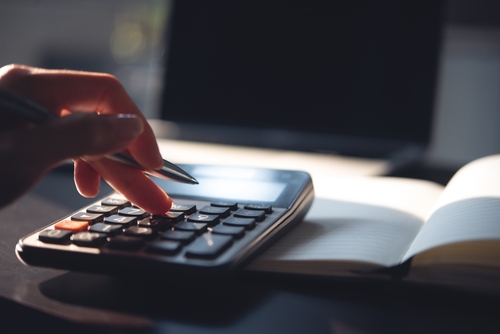
Introduction
If you’re running a limited company, you’ve probably considered the idea of buying a company car. It’s a popular question many business owners face.
Is purchasing a car through your limited company the right move?
While there are clear advantages, there are also some pitfalls to watch out for.
In this blog post, we’ll walk you through the pros and cons, tax implications, and key considerations to help you make an informed decision.
Advantages of Purchasing a Company Car Through Your Limited Company
1. Corporation Tax Relief
When you purchase a car through your company, you can claim corporation tax relief on the cost. The amount of relief you can claim depends on the car’s CO2 emissions, and there are some substantial benefits for environmentally friendly vehicles. This is a great way to reduce your overall tax liability!
•Learn more about this: HMRC – Capital allowances for cars
2. VAT Reclaim Opportunities
For most businesses, justifying VAT recovery on the purchase of a car is difficult. It is not enough that the business expects to use the car predominantly for business journeys, the criteria is whether the car is “available” for private use.
- If the vehicle is purchased solely for business purposes, 100% of the VAT can be reclaimed. Examples of 100% business use include such as in car hire firms, taxis and driving schools.
- If the company car is leased from a supplier, and your business is VAT-registered, you may be able to reclaim up to 50% of the VAT on the lease payments if used for business and personal use.
- For electric cars, the rules for VAT recovery are the same as conventional vehicles.
•You can also reclaim the VAT on maintenance and servicing costs.
•More information: HMRC – VAT on vehicles
3. Tax Deductible Running Costs
Running costs such as fuel, insurance, servicing, and repairs can all be claimed as allowable business expenses. This means you’ll pay less corporation tax, and who doesn’t love that?
However, you must keep accurate records to differentiate between business and personal usage.
4. Electric and Low-Emission Vehicles Are More Tax Efficient
The government offers some fantastic tax incentives for electric or low-emission cars. These vehicles typically have a much lower benefit-in-kind (BIK) tax rate, making them a cost-effective option if you’re looking to go green.
More on electric cars: HMRC – Company cars
Disadvantages of Purchasing a Company Car Through Your Limited Company
1. Benefit-in-Kind (BIK) Tax
If you use the company car for personal purposes, it’s treated as a taxable benefit. The amount of BIK tax payable depends on the car’s CO2 emissions, list price, and your income tax rate (20%, 40%, or 45%).
Higher CO2 emission vehicles have a significantly higher BIK tax charge.
You can use the HMRC Company Car Tax Calculator to estimate your potential tax liability.
2. Reduced Personal Mileage Allowance Claims
Unlike personally owned cars, you cannot claim the mileage allowance (up to 45p per mile for the first 10,000 business miles and 25p per mile thereafter) when driving a company car for business purposes.
The rate which you can claim back mileage on a company vehicle is different to the rate you would pay for your personal vehicle. This could reduce the tax efficiency compared to claiming mileage for a personally owned car.
3. Restrictions on VAT Reclaim
As mentioned earlier, VAT reclaims are usually prohibited on the purchase of cars, but a claim is possible if the company meets both of the following conditions:
- If purchased under a leasing agreement, 50% VAT can be reclaimed if the car is used for both personal and business purposes and 100% if the use is strictly limited to business.
4. Depreciation Costs
Cars depreciate quickly, which means they lose value over time. While you can offset some of this loss against your profits through capital allowances, it’s still something to consider if you’re looking at the bigger financial picture.
Tax Treatment of Different Types of Company Cars
New Cars
The amount of corporation tax relief you can claim depends on CO2 emissions.
From April 2021:
•0g/km CO2: 100% first-year allowance
•1-50g/km CO2: 18% Writing Down Allowance (WDA)
•Above 50g/km CO2: 8% WDA
Electric Cars
Electric cars have become the darlings of the tax world! With a benefit-in-kind rate of just 2% (as of 2024/2025), they’re extremely tax-efficient. Plus, you may be eligible for a government plug-in car grant.
More info on electric benefits: HMRC – Electric vehicle benefits
Second-Hand Cars
If you’re considering a second-hand car, it might still be tax-efficient. However, your capital allowances will still depend on the car’s CO2 emissions, so choose wisely.
Should You Consider Other Options?
If buying a company car doesn’t seem right for your situation, there are other options available:
Frequently Asked Questions (FAQs)
Q1: Can my company pay for fuel expenses?
Yes, your company can pay for fuel, but this could result in an additional fuel benefit tax charge, which often outweighs the actual benefit.
Q2: What happens when I sell the company car?
If you sell the car, any profit or loss is reflected in your company accounts, and you may need to consider tax implications, such as capital gains adjustments.
Conclusion
Purchasing a company car through your limited company can be a fantastic option, particularly for those considering electric vehicles or low-emission models. However, the benefit-in-kind tax and other factors mean it’s not always the most cost-effective choice. Carefully weigh up your options and consult with your accountant to make the best decision.
For more information, check out the official HMRC website for the latest updates and guidance.
Please contact us if you’d like to discuss your company car options then please contact us on 01386 366741 or email here and one of our advisers will be in contact.







